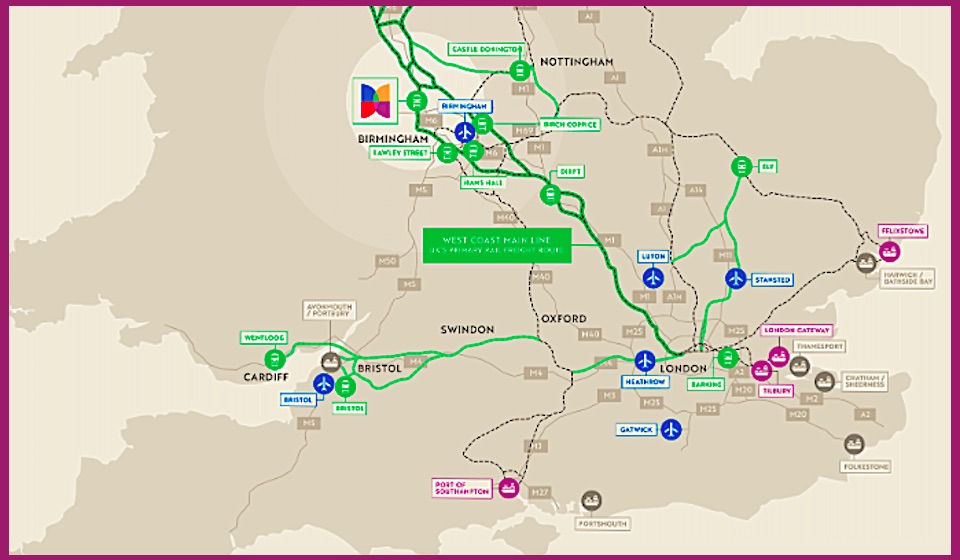The UK multimodal freight carrier Maritime Transport has been appointed rail freight operator at the West Midlands Interchange. The government-designated strategic rail freight interchange (SRFI) is currently under construction at a site north of Wolverhampton. The developers of the logistics park, Oxford Properties Group and partner developer Logistics Capital Partners, have announced an exclusive agreement with Maritime Transport. The agreement secures Maritime Transport as the long-term operator of WMI’s strategic rail freight interchange on the West Coast Main Line.
Maritime Transport already has an enviable record of modern logistics management under its considerable belt. The West Midlands Interchange development claims it will be the UK’s largest logistics complex. Taking on the rail freight management responsibilities at WMI will give Maritime access to a vast infrastructure development, well within the prime “golden triangle” of distribution operations in the UK.
Leading facility in the Golden Triangle
Rail freight facilities are set to be embedded into the West Midlands Interchange. Since Oxford and LCP acquired the WMI site in joint venture in 2021, they have been at pains to stress the importance of the rail facility, despite the clearly convenient road connections. “This next step to create the leading intermodal logistics facility in the UK’s Golden Triangle is a significant one”, said James Boadle, Senior Vice President at Oxford Properties. “Maritime are the leaders in their field, and WMI is the leading logistics development in the country. The two coming together will deliver a significant boost to the regional and national economy.”
The Strategic Rail Freight Interchange will be a typically discrete part of the development. The commercial buildings will dominate the park. There is no denying that eight million square feet (745,000 square metres) of warehouse facilities will be a radical change to the landscape, no matter how much landscaping is undertaken. However, it should be noted that if the project lives up to contemporary standards, it will be convincingly discrete. One billion pounds (1.17 billion euros) does buy a high standard of landscaping. The first phase of development has already commenced at the 734-acre site (around 300 hectares), comprising significant infrastructure works including earthworks, highways construction, water installation and the creation of two new community parks.
Moving cargo closer to the end user by rail
“As the leading road and rail freight logistics provider in the UK, West Midlands Interchange is the obvious next addition to our rail network”, said John Williams, Group Executive Chairman of Maritime Transport. “Being the long-term operator of WMI fits exactly with our wider strategy of decarbonising the full load supply chain by moving cargo closer to the end user by rail. We have already substantially increased container movements by rail, from six per cent in 2019 to over 24 per cent in 2023.”

Maritime has certainly a track record of moving towards cleaner logistics. The carrier already operates twenty-five rail freight services, and their road trucks are being more frequently deployed on shorter runs, and their familiar blue and white liveried locomotives are a common sight on the West Coast Main Line, Europe’s busiest mixed traffic route, and elsewhere on the British network.
“We are committed to this strategy of decarbonising which will lead to the introduction of BEV (Battery Electric Vehicle) effecting the first and final mile transport, creating the most sustainable full load supply chain network in the UK”, explained John Williams. “WMI is poised to remove up to 50 million kilometres of HGV [heavy goods vehicle] traffic annually. This marks yet another milestone for a project that exemplifies both Oxford’s conviction in UK logistics, and our commitment to environmental social governance.” Build out of the entire West Midlands Interchange project is expected to take up to a decade.